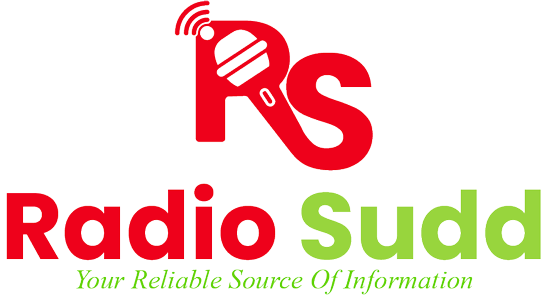By Majok Guet Kuol
BOR, Jonglei, South Sudan – Once renowned for its fertile floodplains and dependable planting seasons, Bor’s agricultural sector is now under severe threat from climate change. Smallholder farmers in the region are at the mercy of erratic rains, prolonged dry spells, and destructive floods, as the seasons they once relied upon for tilling, sowing, and harvesting have become increasingly unpredictable.
Mark Lual Mayen, a 32-year-old farmer in Anyidi Payam, recently witnessed his entire sorghum farm destroyed by floodwaters. “The rains no longer come when we expect,” Mayen lamented. “For the last two years, we have had a good harvest, but still, we were struggling with the climate, but it was good. This year, we planted late because the rains were delayed, and now it’s flooded.”
Mayen’s experience is shared by hundreds of farmers across Bor County who depend heavily on rain-fed agriculture. Without proper irrigation systems or accurate weather forecasts, farming has devolved into a high-stakes gamble.
Over the past five years, Jonglei State has endured cycles of intense flooding followed by severe droughts. Devastating floods in 2020 and 2021 displaced thousands, destroyed crops, and swept away livestock. Yet, by 2023, parts of Bor faced dry spells that left parched, cracked earth where water should have been.
John Matiop Ayuen, another farmer from Anyidi Payam, highlighted the critical lack of information and updated weather forecasts as a major contributor to the current crop destruction. “Flood has affected our crops at the lower ground and with higher ground also destroyed the crops,” Ayuen explained. “Some of us were having 8 to 10 padden [measure of land]… this is because of the last year’s good harvest in our area here and that motivated most of us to increase the efforts, so we need a way to predict the weather and prepare in advance.” He urged the Ministry of Agriculture and partners to provide farmers with yearly climate-related information. Matiop views the current devastation as a harsh lesson, emphasizing the need for greater effort in adapting climate-resilient systems. “I am calling upon our communities not to give up because the current climate change is known despite having no information provided to us,” he said.
Maker Mabior Nihal, a 36-year-old farmer from Makol Chuei Boma, explained that they traditionally rely on local weather knowledge, which has proven unreliable for the past two years. “For the last two years we have been facing flooding challenge, rainwater sometimes come before we planted anything and sometimes immediately after we plant our crops,” Nihal stated. “This year we planted early before those big rains came and after the heavy rain started it found that we already planted, but it has affected the lower ground so we lack awareness of climate change early warning system, no sources of information. Even if it’s just a radio message or a community alert, something to guide us.”
Call for Climate-Resilient Agriculture and Early Warnings
Experts say climate-resilient farming is the key to survival. This includes practices such as water harvesting, the cultivation of drought-resistant crops, raised-bed farming, and the use of weather-tolerant seed varieties. However, many farmers in Bor continue to rely on traditional methods.
Deng Garang Kuei, the Country Director for Combat Hunger South Sudan (CHSS), emphasized the importance of smart agriculture as a mitigation measure against climate change. “We have been supporting the farms with seed, agronomic practices, capacity building,” Deng said. “We have assigned our extension workers to help the youths and other farmers with farm inputs to youths’ farmers.” He acknowledged that the transition to climate-smart agriculture is slow due to limited awareness and resources. “We’ve trained a few farmer groups on how to manage floods and droughts, but the need is massive,” Garang stated. He advised farmers that early planting and blocking water flow into farms are effective solutions.
Deng stressed that raising awareness is crucial, suggesting that community radio stations, churches, and local leaders can play a vital role in disseminating information on climate-smart practices.
Government and NGOs Mobilize Limited Resources
The Jonglei State Ministry of Agriculture reports that it is developing a climate adaptation plan, but implementation at scale is hindered by limited funding and weak infrastructure. Del Anyieth Atem, the Director of Agricultural Mechanization in the Jonglei State Ministry of Agriculture, confirmed that the ministry and its partners are working to build farmers’ capacity. “We are engaging partners to support small-scale irrigation, community weather stations, and farmer training,” Del explained. “But the scale of the crisis is bigger than our current capacity.” He suggested that investing in local meteorological services and strengthening farmer cooperatives could also build resilience. Del underscored that climate change is no longer a theoretical concept for farmers and that they urgently need alternatives, such as rice cultivation and dike construction.
Despite the looming threat, effective early warning systems are largely absent in Bor. According to the Jonglei State Ministry of Agriculture, timely and accurate weather information could save crops and livelihoods, but such systems are currently non-existent.
Some NGOs, including FAO, NPA, CHSS, and UNOPS, have initiated small pilot programs, introducing solar-powered irrigation pumps, improved seed varieties, and training sessions on post-harvest management. However, these efforts have only reached a fraction of the affected population.
As the climate crisis tightens its grip on Jonglei, farmers in Bor are not asking for charity, but for empowerment. With timely information, resilient seeds, and modern methods, they believe they can still overcome the challenges. However, time is running out.
Editor’s note: This story was reported with a grant from Journalists for Human Rights under the ‘Tackling Mis/Disinformation Project,’ funded by the Peace and Stabilization Program of the Government of Canada.
